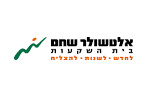There has never been a greater requirement for marketing accountability. Designing a performance management platform for marketing may improve measurability and better align marketing activities with business goals.
Popular measures used to analyze are activity-based metrics which entails numerical counting and reporting. For example, tracking downloads of documents, website visitors, attendees at events are kinds of activity-based metrics. However, they seldom associate marketing to business results.
This is achieved mainly by focusing on aligning marketing activities and metrics with company’s goals. It entails the formation of a measures / KPI framework that will track the performance of marketing, and then develop and use marketing dashboards in managing marketing performance.
Obviously, there are marketing effectiveness metrics that may be quantified and then measured. Creating leads and customers is the first target of marketing and the effectiveness may be evaluated by the total number of new customers, new leads and in case of telemarketing, this can be evaluated by number of completed calls. Another significant aspect of effectiveness can be the quantity of new products existing customers have purchased since the goal of any business is to retain existing customers and create new customers.
Another consistent and simple way of evaluating marketing activities is by response measurement. By dividing the cost of marketing activity by the total of responses, you can be able to measure the cost of response ratio. The cost of response ratio may assist in deciding if the activity was successful compared to other marketing activities. Marketing Return On Investment should be the standard measure of the success of different marketing activities.


























































